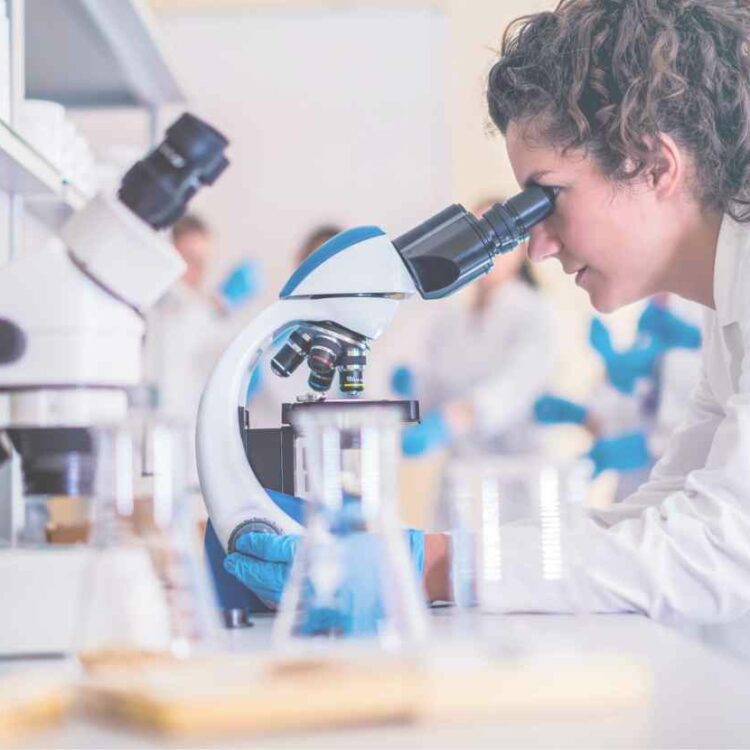About the Center of Integrative Nutrition and Food Research (CINFR)
CINFR, strategically situated in Tallahassee, Florida’s capital, will function as an FSU corporate research center bridging food science and nutrition research. At CINFR, we are committed to generating knowledge that benefits human health and aims to prevent chronic diseases through our research findings. CINFR will comprise a world-class nutrition and food science research center that conducts excellent forefront food science and nutrition research. This FSU inter-university corporate research center will focus on interdisciplinary and emerging research frontiers, including food safety and quality, microbiome, nutritional interventions, functional foods, digestive health, and cardiometabolic functions. CINFR has a flexible and topic-based membership structure, which allows us to leverage and capitalize on our integrated scientific expertise and facilitate research on complex and multidisciplinary issues.


Mission
Our mission is to foster and enhance student education and training in integrative nutrition and food sciences, fostering a learning environment where knowledge, experience, and expertise in food safety and quality, nutrient analysis, microbiome sciences, chronic diseases, and dietary interventions are developed and widely shared. We aim to generate and disseminate novel insights from food and nutrition research practice at university, national, and international levels through event organization and publication.
Vision
Our vision is to be recognized nationally as well as globally as a premier academic institution in nutrition and food science research, serving as an epicenter and collaborative hub for innovation and discovery. Our vision encompasses the following key elements:
- Innovative Research: We aim to conduct cutting-edge research that advances our understanding of nutrition and food science, contributing to developing healthier food options and improved dietary guidelines with an ultimate aim to improve human health.
- Interdisciplinary Collaboration: We strive to foster collaborations across various disciplines within and outside FSU, promoting a holistic approach to nutrition, food science, and health research.
- Education Excellence: We are committed to providing high-quality education and training to prepare the next generation of nutritionists, dietitians, and food scientists.
- Community Engagement: We aim to actively engage with local, national, and global communities, sharing our research findings and promoting healthy eating habits.
- Sustainability: We aspire to contribute to sustainable food systems through our research and outreach activities, promoting eco-friendly food production and consumption practices.
Through these endeavors, CINFR will enhance nutrition and food science research, thereby improving human health and well-being and contributing to a sustainable future.
At CINFR, the existing organizational structure is complemented by a Scientific Council. The Council advises CINFR on its research orientation by providing constructive support and making recommendations on its strategic development and vision. Dr. Qinchun Rao will lead our team and serve as the Director, and Dr. Ravinder Nagpal will be the Associate Director. Together, their expertise and leadership will guide and strengthen CINFR’s pursuit of nutrition and food science excellence. In addition, the team will comprise eight distinguished nutrition and food scientists and microbiologists, each bringing a unique set of research specialties to the forefront of our mission.
Director

Associate Director

The CINFR aims to enhance the Florida State University (FSU) 2023-2027 Strategic Plan, particularly Goal 1: Amplifying Research and Academic Excellence, and Goal 3: Fostering and Inspiring FSU’s Entrepreneurial Spirit. In addition, the CINFR is dedicated to implementing three key strategies outlined in the ASPIRE plan. These strategies include Partnerships and Innovation (2.3 Increase opportunities to work together to develop impactful solutions and 2.4 Encourage cross-disciplinary engagement for students and faculty), Supporting Infrastructure (3.1 Improve and expand facilities and 3.3 Enhance training programs), and Impact Areas and Crosscutting Themes (5.1 Healthy Florida and 5.3 A resilient future). It also seeks to foster the continuous development of the Nutrition and Food educational and research program within the Department of Health, Nutrition, and Food Sciences.
- Food Processing and Quality Enhancement: We aim to understand food interactions, bioavailability of food ingredients, and employ food processing technologies to enhance food safety, quality, and nutritional value. Our research also includes advancing rapid detection methods for food adulterants, such as allergens, in various food products.
- Advancements in Food Safety and Pathogen Detection: We aim to develop rapid detection techniques for harmful foodborne pathogens and sustainable methods to mitigate pathogens. Our research is further enhanced by integrating artificial intelligence and advanced sensing technologies to create smarter food safety monitoring and quality assessment platforms.
- Nutrition Biochemistry, Molecular Mechanisms, and Chronic Disease Prevention: We aim to explore the interplay between nutrition and human health and examine the role of microbiome in gut and cardiometabolic health. Our goal is to develop comprehensive strategies for disease prevention and optimal health through diet and lifestyle.
- Food and Nutrient Analyses: This facility will be equipped with advanced analytical instruments to support comprehensive food composition and nutrient content analyses.
- Histology: This facility will support a broad spectrum of research projects, from investigating the impact of nutritional interventions on cellular pathways to exploring the tissue-specific responses to various food components.
- Metabolic Kitchen: It will be designed for controlled dietary intervention studies. It will include a professional kitchen alongside body-composition analyzers to assess the impact of diet on human metabolism. The proposed research will evaluate dietary patterns’ effects on metabolic health and the efficacy of functional foods in disease prevention.
- Immunochemistry: It will be specifically designed to address the critical needs of identifying and quantifying allergenic proteins and adulterants in various food matrices. This specialized core facility will be equipped with the latest immunoassay technologies tailored for high-sensitivity detection of food contaminants.

